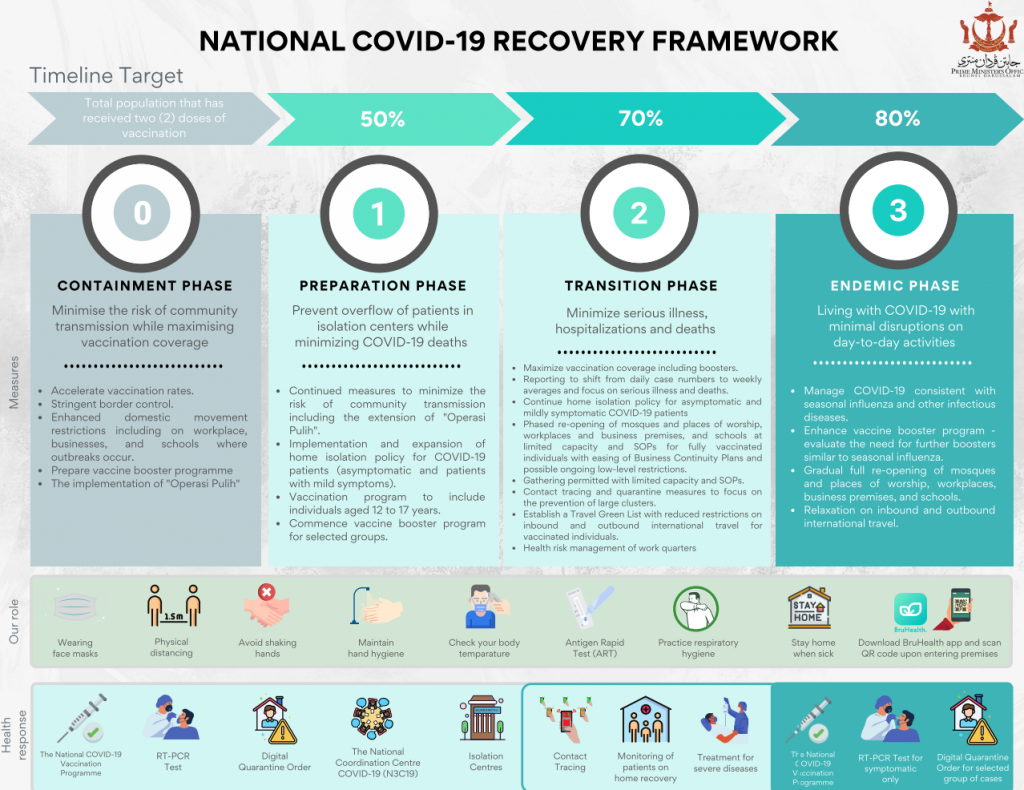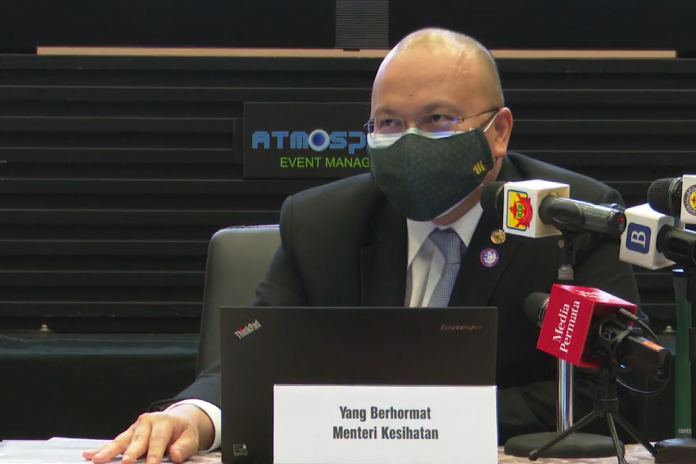COVID-19 cases that require hospitalisation in Tutong will be the government’s main benchmark in measuring the progression of the pandemic as the country gradually begins reopening under the transition phase on November 19.
As other countries report increase in new coronavirus cases when reopening, Brunei may too experience a similar scenario said the Second Minister of Finance and Economy and the Minister of Health at the COVID-19 press conference on November 18.
However both ministers said it would be more serious cases in category four and five that require hospitalisation at the country’s main COVID-19 treatment venue – the National Isolation Centre’s (NIC) facilities at the PMMPMHAMB Hospital – that would take precedence over the number of new or active cases.
Spikes in daily cases that do not lead to increased admissions at NIC or deaths will therefore not see restrictions tightened again.
This is part of the government’s wider endemic strategy – “living with COVID” – rather than attempting to eliminate the virus’ spread entirely. The transition phase is the final preparatory stage before endemicity under the National COVID-19 Recovery Framework.
“When cases (in category four and five) increase in Tutong it will affect our healthcare system (in its capacity to treat COVID effectively). So that is our benchmark. Not how many cases – say 300 (new cases) – then we will return (to the previous phase),” said the Minister of Health YB Dato Dr Hj Mohd Isham.
“So we expect cases to increase – we hope that it doesn’t – but if it does, we need to see how many are admitted to the hospital needing treatment. If admissions (to Tutong) are not a lot, still stable – 10% (for example) – then we can still proceed to the next phase.”

Under the transition phase previously closed businesses, as well as places of worship and higher learning institutions, are allowed to reopen with up to 50% capacity.
Although the transition phase is considered a de-escalation of restrictions, entry requirements to government and business premises are now more strict, with only the fully vaccinated allowed to access.
By allowing only the fully vaccinated to access public premises, the government is hoping that the severity of COVID-19 in newly transmitted cases will be relatively minor, since the vaccine has proven its efficacy in reducing symptoms.
Category four cases are those requiring oxygen support, with lung infection or pneumonia. Cases with multiple organ failure are considered case five.
Currently, those with mild symptoms are allowed to isolate at home with specific guidelines, thereby lessening the demand on the government’s healthcare resources.
With the government announcing sector and activity-specific guidelines and fines for violating them, the Minister of Health still advised people to only go out when necessary, and to avoid crowded places during the transition phase.
As of November 21, 76.1% of the population has been fully vaccinated, with 93% receiving at least one dose. There are 431 active COVID cases, with five falling under category five and none under category four.












